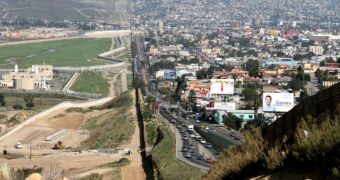As further evidence of the fact that the US healthcare system needs a thorough reform, a new study recently published in the journal Medical Care shows that nearly one million Californian residents sought professional medical healthcare in Mexico in 2001, preferring the so-called “lower standards” to their own country's soaring costs and little benefits. Out of the 952,000 people that were recorded as exiting the US for medical, dental or prescription services, more than 488,000 were Mexican immigrants, while the rest were average American citizens, unsatisfied with the quality of services their own country had to offer.
The research, which was conducted by experts at the University of California in Los Angeles (UCLA), is based on data gathered from the 2001 California Health Interview Survey (CHIS). By all accounts and purposes, experts believe, it may be that the number of people seeking aid in Mexico has increased in the eight years that have passed since the original study. The two main reasons why individuals sought help elsewhere, the researchers point out, were the high costs of services in the US, as well as the lack of insurances.
“What the research shows is that many Californians, especially Mexican immigrants, go to Mexico for health services. We already know that immigrants use less health care overall than people born in the US Heading south of the border further reduces the demand on US facilities,” UCLA Center for Health Policy Research Associate Director Steven P. Wallace explained. The Center is also the facility in charge of conducting the CHIS. Wallace has been the lead author of the recently published Medical Care paper, LiveScience reports.
Counter-intuitively, the research team also learned that it was not the poorest segment of the immigrant or US population that went to Mexico for analyses, but rather that with at least some means of survival. The reason for that, they speculate, may be that the poor wouldn't really have saved any money by going to the neighboring state, as the dollars saved from buying cheaper drugs would have went to transportation and accommodation. Wallace said that the two nations should not exclude binational health insurance plans. “To the extent that binational plans encourage more people to access preventative and other health care, they should be encouraged,” he explained.

 14 DAY TRIAL //
14 DAY TRIAL //